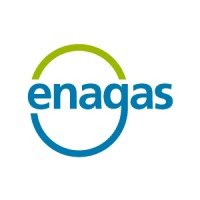Study shows shipping hydrogen from Iceland to Rotterdam realistic before 2030
The port of Rotterdam aims to become the major import hub for hydrogen to supply to Europe’s changing energy offtake.

The Port of Rotterdam and Landsvirkjun, the National Power Company of Iceland, have concluded a pre-feasibility study about exporting green hydrogen from Iceland to Rotterdam, showing favourable results.
The study has revealed that the project is technically feasible, financially attractive and supportive in the fight against climate change.
Both partners have examined the key components of the value chain encompassing renewable power generation and hydrogen production in Iceland and then shipping hydrogen to the port of Rotterdam. The assessment has taken into account energy density, costs, demand and other attributes.
The study suggests that a potential project of a level between 2 and 4 TWh (some 200 to 500 MW could be realised in the second half of this decade, contributing around 1 million tonnes/year of CO2 reduction, which can be increased in the longer term. The energy used for the production of hydrogen could be sourced from hydro, geothermal and wind. Such a diverse range of clean energy sources is a great advantage to Iceland and can make Icelandic hydrogen cost completive in the European market. Electrolysis would be used to produce hydrogen, which would be then liquefied or converted into a carrier for transporting to Rotterdam.
Both organisations now plan to jointly explore and develop this unique opportunity and will further elaborate on these plans in H2:2022.
At the request of the Dutch government, the Port of Rotterdam Authority identified high potential hydrogen exporting countries and companies to meet Europe’s future demand, which also includes Iceland as a strong contender.
Hordur Arnarson, CEO of Landsvirkjun, said, “The results of the pre-feasibility study are very encouraging.”
Allard Castelein, CEO Port of Rotterdam Authority, said, “We are very excited by the results of the study as well by the good chemistry between our two companies which is key to develop such impactful new supply chains.
Mr Castelein further added, “This new green energy for Europe, distributed via Rotterdam’s terminals and hydrogen backbone, could further help decarbonise our industrial complex and our customers elsewhere in Europe.”
